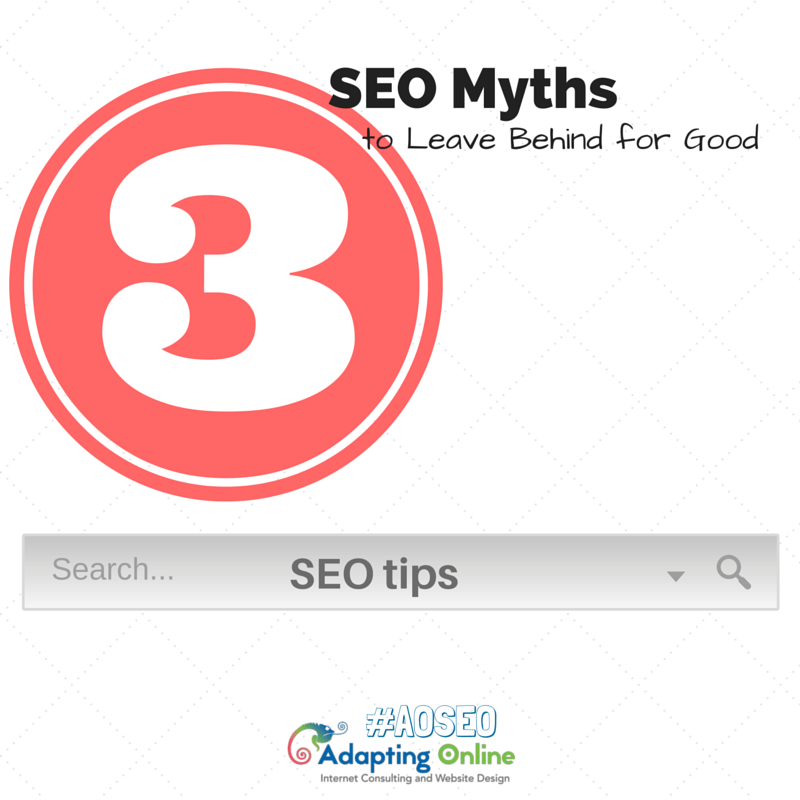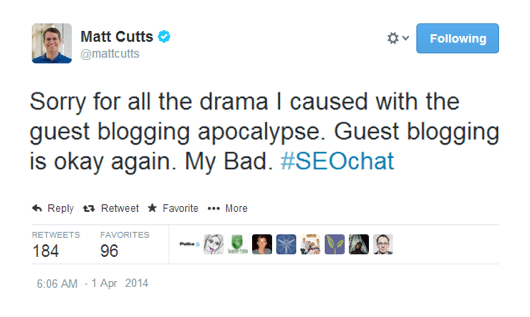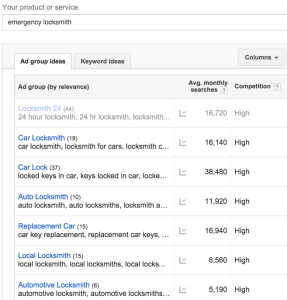There is no shortage of SEO information.
A quick search for “SEO tips” yields over 40 million search results in Google:

That number alone is enough to make anyone feel overwhelmed. Even intimidated.
Making matters worse is that many experts in the industry often share conflicting advice. Not to mention that search engine algorithms are constantly evolving. Many practices that were once rewarded are now likely to result in a ranking penalty.
The hardest part is undoubtedly separating useful information from all the noise.
But where do you even start?
The following looks at some of the most common SEO myths that continue to be prevalent today. We recommend leaving these behind for good to avoid potentially putting your business at risk.
1. Keyword Research is Not Necessary
Ignoring this fundamental step puts your site at a serious disadvantage.
The reason why is because discovering keywords that are relevant to your business enables you to better optimize your site. Which translates to higher visibility and more traffic from the search results.
But a balance also needs to be made.
Savvy marketers know that “head” keywords (e.g. shoes, cars, computers, etc.) are extremely competitive and that ranking for them is practically next to impossible without a serious budget. Targeting keywords with barely any traffic would be equally fruitless.
So a better approach would be to target keywords with a decent amount of search volume and low competition.
Google’s Keyword Planner tool is a good starting place. Note that you will need an AdWords account. Enter in keywords that are relevant to your business for more ideas and to see estimated traffic levels. You can also drill down into each ad group for additional keywords.
Google is known to update its algorithm hundreds of times a year with one or two major updates in between. But even with these changes, keyword research remains more important than ever.
2. Meta Tags No Longer Matter
SEO naturally attracts troves of spammers given the lucrative nature of high rankings.
So it wasn’t long before spammers would keyword stuff meta tags in attempt to manipulate their rankings. Meta tags are elements on a page that help search engine determine what a page is about. The three main ones are:
- Title tags: A title that best describes what the page is about.
- Meta description: A brief description of the page that displays each search result.
- Keywords: Keywords that are most relevant to the page and the topic.
With the exception of the title tag, the description and keyword tags no longer carry as much weight in terms of rankings. But it is still worth optimizing them as they are beneficial from a user standpoint.
Consider the following search results for “emergency locksmith”:


The title and description on the second look far more enticing the first one.
Meta tags may not be as important as they were before but they are still worth spending time on as well optimized meta tags can improve click through rates.
3. Guest Blogging Equates to Spamming
Google evaluates hundreds of different factors to assess rankings for each search query.
Backlinks are perhaps the most important as each one is seen as a vote. All else being equal, a site with more quality links from relevant sources will outrank a site without any.
So how exactly do you build a quality link?
One of the best ways is with guest blogging. This entails publishing content on another site, ideally in an industry that is similar to yours. For your content you get a relevant link with the added potential to drive traffic to your pages. Guest blogging is a great strategy to build quality links.
But Matt Cutts posted the following statement on his blog:
“Okay, I’m calling it: if you’re using guest blogging as a way to gain links in 2014, you should probably stop. Why? Because over time it’s become a more and more spammy practice, and if you’re doing a lot of guest blogging then you’re hanging out with really bad company.”
The post expectedly created an uproar in the community with many wondering what implications it would have. Would guest blogging result in a ranking penalty?
But what Cutts was actually referring to was spammy guest articles done on a large scale without adding any value. In fact, he would later retract his statement in a Tweet:

Guest blogging is still very much alive and done right has the potential to dramatically increase traffic. But the key is and always has been on providing value with your content. Otherwise you risk getting hit with a ranking penalty.
Conclusion
Optimizing a site for higher rankings in the search results is at essentially what SEO is. But this area continues to be filled with numerous misconceptions. Despite the many updates to Google’s ranking algorithm, keyword research and guest blogging are more important than ever before. Ignoring any of these means losing a significant competitive advantage online. If you have questions about SEO trends or if your website is not ranking contact us at 512-993-9993 to see if we can help.

